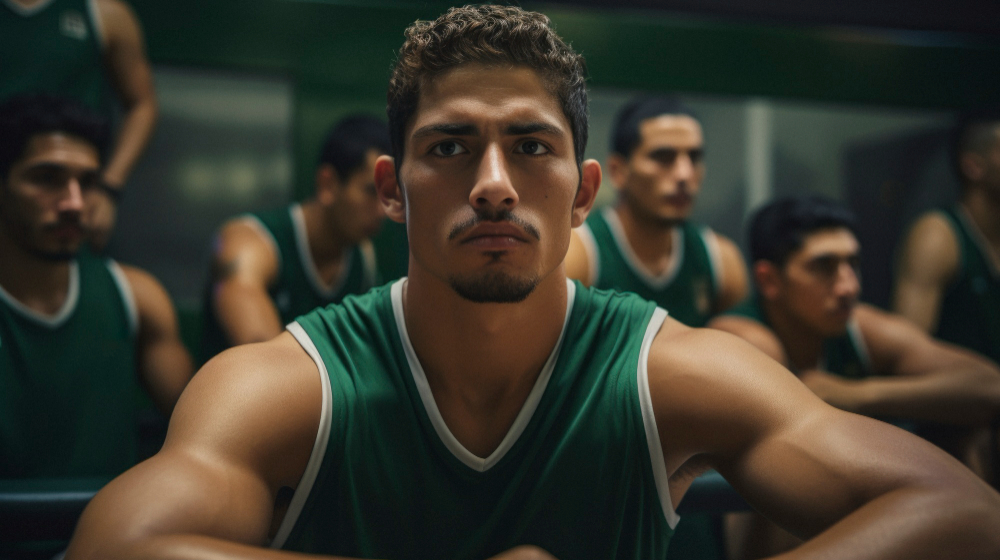Exercising mental toughness helps one to outperform their best when under immense stress and self-doubt. A key characteristic of mental toughness is staying collected amid critical situations, managing exhaustion, and recovering quickly from setbacks.
A good example would be Serena Williams and Virat Kohli; both of these competitors are noted for thriving under intense scrutiny and pressure. For many young athletes, hearing about mental toughness is an introduction to the concept and aids in developing it.
 Strategies Champions Use to Stay Focused
Strategies Champions Use to Stay Focused
Effective athletes utilize several methods to improve their mental performance. One of the most popular is visualization, in which athletes “mentally” rehearse their actions ahead of time. A sprinter can imagine going through the processes of finishing the race and experiencing every part of the race.
This type of mental preparation enhances self-belief and preps the brain for the real event. Young self-disciplined athletes are advised to visualize contests to plan their strategies, and motivation for preparation–they should picture themselves inching closer to victory vividly.
Setting goals helps athletes stay grounded. World-class athletes effectively transform an overwhelming goal into smaller manageable tasks. Instead of worrying about winning a gold medal, a swimmer may decide to set a goal that is more immediate, such as improving their lap times.
By completing MelBet registration, young athletes can join communities to share goals and stay motivated.
As a result, motivation does not fluctuate, and overload is avoided. At the outset, young athletes tend to focus on setting easy goals, including understanding a technique or working on their stamina.
Support from the people around you can be very helpful. Due to the support and guidance in mentoshi’s sports programs, there is any coordination between both the participants and the supporters.
Most young athletes will usually seek some form of sponsorship to help them deal with challenges.
Overcoming Pressure and Setbacks
Pressure at home is part of sports, whether the weight of expectations or fear of letting teammates down. Champions address the problem by concentrating on manageable aspects. The platform MelBet Sri Lanka offers a space where athletes can discuss strategies to handle pressure.
Even though the cricketer does not control the delivery, they remain able to develop their stance and swing. Attending actions they can change enables athletes to lower anxiety and maintain steady performance.
The mental stamina of a person is deeply challenged by the injuries or losses that might be incurred. For the elite athletes, these events serve as a potential growth opportunity. Athletes, after a loss, tend to undergo a mental reconstruction to figure out how to move forward.
This is possible for most collegiate athletes when they are able to analyze themselves instead of blaming themselves. It is self-reflection, asking oneself what could be done differently, that ultimately creates a defeat that can be learned from.
The role of support systems cannot be undermined. Motivational Perspectives enables coaches and fellow teammates to broaden the scope of their optimism. A gap aptly describes a young athlete’s confidence which can quickly be bolstered with a few encouraging remarks from a mentor, or even from a third party.
An athlete is able to achieve balance with the many athletic encounters he/she undergoes with a well balanced and stable support group.

 Practical Tips for Young Athletes
Practical Tips for Young Athletes
Practicing mental toughness allows you to build that skill, and even modest efforts can produce impressive growth. These five practical tips will help you increase your mental toughness and manage pressure successfully:
- Practise mindfulness daily: Doing meditation or deep breathing for five minutes daily can make it much easier for you to concentrate. There are online resources that provide easy tips, including using deep breathing to help calm your mind just before a game.
- Build a pre-competition routine: Make sure to systematically perform exercises like stretching, listen to music that gets you excited, or see yourself winning, before you compete. This signals to your brain it’s time to perform, helping you lock in.
- Set small, clear goals: Set goals that are possible to accomplish by, for example, growing one skill or exceeding your own earlier accomplishments. Successful completion of small goals allows you to stay motivated and confident.
- Use positive self-talk: Find a favorable phrase, for instance, “I’m ready,” and say it continually while you practice. Repeating this phrase may build your confidence under pressure.
- Seek out challenges: Choose the hardest challenges to join and work with people who have been doing this for a longer time. Stepping outside your comfort zone helps you build mental toughness and get prepared for situations that matter most.
If you begin with these actions, you will find that your mental toughness and focus strengthen over time. Every action you take makes you more mentally tough as an athlete.